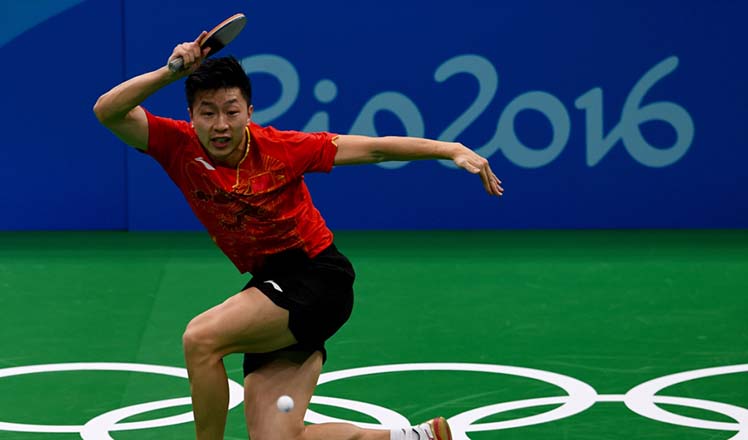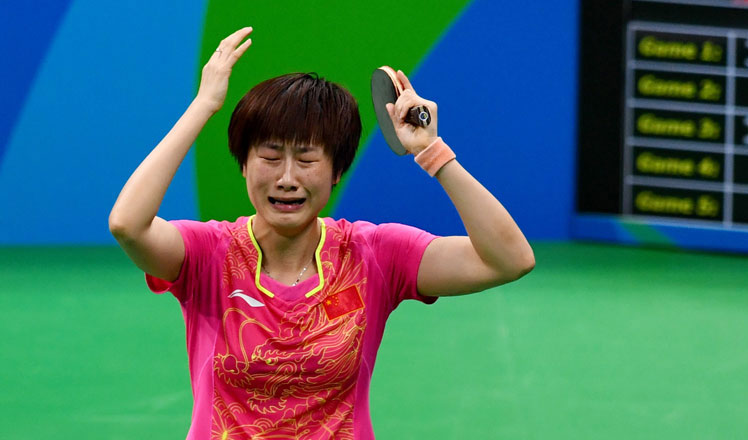Silence gives way to sound with cochlear implants
Updated: 2016-08-10 08:23
By Shan Juan(China Daily)
|
||||||||
China's first recipient of a cochlear implant to restore hearing in 1995 remembers the experience as an adventure that was "totally worth it".
Lu Feng lost his hearing as a side-effect of drug use at age 21 and lived in silence for 10 years before getting the implant. Three months after the surgery, his hearing returned. He now owns an IT company.
"I am lucky. Most Chinese cannot land one," he said.
A cochlear implant is a surgically implanted device that helps overcome problems in the cochlea, a curling tube located in the inner ear. Its function is to convert the vibrations from sounds into electrical signals and transmit them to nerves that then send signals to the brain. There they are translated into recognizable sounds.
Implants are recommend for newborns with hearing loss and adults who lost their hearing as a result of accident or age, according to Dai Pu, vice-chairman of Chinese PLA General Hospital and head of the hospital's Ear, Nose and Throat Department. School-age recipients can attend normal class activities. For newborns, the surgery should be done before 3 years old to secure the best possible outcome.
However, fewer than one-third of the children with hearing loss in China can get an implant, he said.
China now has roughly 30,000 newborns suffering hearing problems. Half of them require cochlear implants. Another 30,000 to 50,000 begin to display hearing problems at age 2 to 4, official figures show.

"The low awareness and economic constraints are the major barriers," Dai said.
A cochlear implant costs about 20,000 yuan ($3,000) in China and generally has not been covered by health insurance programs. On the positive side, the central government began paying for implants for around 6,000 underprivileged children who suffer hearing loss each year.
"But there are still huge gaps, particularly with seniors," he said, urging the government to bring cochlear implants into insurance programs.
"For children, it's a matter of having an opportunity for a great future; for the old, it's about quality of life," he said.
Dig Howitt, chief operating officer of Cochlear Limited in Australia, the world's leading cochlear device manufacturer, said the procedure is covered by health insurance in many developed countries and is cost-effective in light of the contributions made by people who regained their hearing.
Adults in developed countries account for the majority of procedures - about 70 percent, according to Howitt. In China, 80 percent are children.
shanjuan@chinadaily.com.cn
(China Daily 08/10/2016 page8)
- Nepal's newly elected PM takes oath
- Texas gun law worries incoming students
- China vows to deepen economic, trade cooperation with ASEAN
- Fire guts Emirates jet after hard landing; 1 firefighter dies
- Egypt's Nobel-laureate scientist dies of illness in US
- THAAD muscle flexing unmasks anxiety over declining hegemony
 Phelps writes new page with four wins in same event
Phelps writes new page with four wins in same event
 Ma Long wins Chinese derby to edge defending champion
Ma Long wins Chinese derby to edge defending champion
 Yingjing County's hand-crafted 'black pottery'
Yingjing County's hand-crafted 'black pottery'
 Ten photos from around China: Aug 5 – 11
Ten photos from around China: Aug 5 – 11
 Inheritor of Songshan wood carving in C China
Inheritor of Songshan wood carving in C China
 "Born in China": Wild and fun
"Born in China": Wild and fun
 Top 10 foreign destinations for Chinese tourists
Top 10 foreign destinations for Chinese tourists
 Ding Ning wins table tennis gold in Rio
Ding Ning wins table tennis gold in Rio
Most Viewed
Editor's Picks

|

|

|

|

|

|
Today's Top News
Phelps puts spotlight on cupping
US launches airstrikes against IS targets in Libya's Sirte
Ministry slams US-Korean THAAD deployment
Two police officers shot at protest in Dallas
Abe's blame game reveals his policies failing to get results
Ending wildlife trafficking must be policy priority in Asia
Effects of supply-side reform take time to be seen
Chinese State Councilor Yang Jiechi to meet Kerry
US Weekly

|

|







